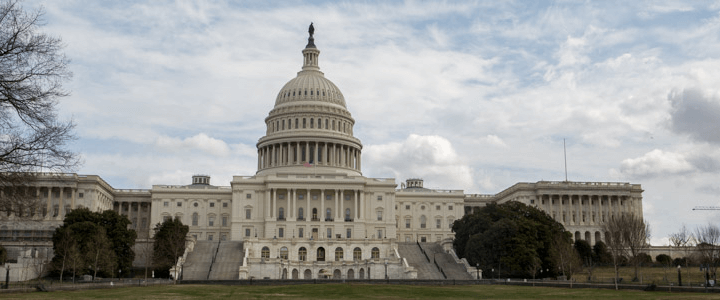It’s all-hands-on-deck time for every defense lobby shop in the National Capital Region. This week, the House Armed Services Committee will undertake the process of building the annual National Defense Authorization Act. This bill, which Congress has passed every year since 1961, sets the end-strengths of the services, authorizes military procurement programs, and dictates other national security policy for the coming fiscal year, is the signature achievement of the armed services committees.
During markups, which take place Wednesday and Thursday, members of the HASC’s seven subcommittees draft their parts of the bill. Unlike the partisan bickering you see before the cameras, the markup process is fairly tame, business-like, and bipartisan.
The full committee then discusses the complete package over two days. Bills filed earlier in the year, subject to the approval of a majority, are incorporated into the NDAA. Since Congress convened in January, representatives have filed 160 bills that the speaker referred to the HASC. Many, but not all of these, will make their way into the NDAA.
Topics range from veteran and spouse employment programs, to making the effective date for eligibility of early receipt of reserve retired pay retroactive to 9/11 (an annual effort that has failed each tome due to its budget-killing nature), to ensuring “that every military chaplain has the prerogative to close a prayer outside of a religious service according to the dictates of the chaplain’s own conscience.”
CHAIRMAN SEEKS MORE ACQUISITION REFORM
Last year’s major change was an effort led by House chairman Mac Thornberry (R-Tex.) and Senate chairman John McCain (R-Ariz.) to split the office of the Under Secretary of Defense for Acquisition, Technology, and Logistics into two offices: Under Secretary for Research and Engineering, and Under Secretary for Acquisition and Sustainment. The unlikely effort overcame resistance from the Obama administration to become law.
Where previous efforts focused on the way the DoD is organized, this year, Chairman Thornberry wants to reform how the Pentagon buys many items, and how it audits contractor costs. The “Defense Acquisition Streamlining and Transparency Act,” an ambitious acquisition reform package, would require the Defense Department to buy its commercial items (those items that are not specifically designed for the DoD, but are available on the open market) exclusively through an online marketplace used by private-sector companies.
This effort was met with some skepticism from the business community, however. While supportive of the concept, the Coalition for Government Procurement, the trade association representing those companies that sell commercial items to the government, said it had concerns over how the measure would address procurement issues “such as the Trade Agreements Act, Small Business Set-Asides, and Buy American provisions.”
It was also concerned the bill does not specifically require the use of multiple online marketplaces. The coalition is concerned that the use of a single marketplace would stifle competition.
BILL WILL CALL FOR MORE OUTSIDE AUDITS
Thornberry also seeks to streamline the audit process for government contracts by requiring the government to accept the results of audits of contractor indirect costs completed by independent auditing firms, as long as the contractor “does not have a predominance of cost-type contracts as a percentage of sales.”
The measure would also allow the Defense Contract Management Agency to choose between the Defense Contract Audit Agency and outside private-sector auditing firms when conducting incurred cost audits. In a sign the “choice” is more of a directive, beginning on September 1, 2020, the bill would require the DCMA to conduct 25 percent of its cost audits through outside firms.
Watch this space for additional information on the NDAA as the process unfolds.



